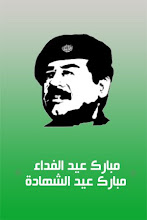Some $8.8 billion dispersed for reconstruction efforts in Iraq is unaccounted for, says the U.S. official in charge of tracing it.
02/09/06 "CBS" -- -- For a report to be broadcast this Sunday, Feb. 12, at 7 p.m. ET/PT,
60 Minutes correspondent Steve Kroft investigates the billions spent on reconstruction-related work, particularly money paid to a contractor, Custer Battles, now being sued for fraud.
Stuart Bowen, special inspector general for Iraq reconstruction, says $8.8 billion is unaccounted for because oversight on the part of the Coalition Provisional Authority, the entity governing Iraq after the war, "was relatively nonexistent."
The former number two man at the Coalition's transportation ministry, Frank Willis, concurs. "I would describe [the accounting system] as nonexistent." Without a financial infrastructure, checks and money transfers were not possible, so the Coalition kept billions in cash to pay for its multitude of projects. "Fresh, new, crisp, unspent, just-printed $100 bills. It was the Wild West," says Willis.
Such an atmosphere made it possible for billions to go missing and companies to defraud the Coalition. Custer Battles, a company quickly formed after the war to get reconstruction contracts, goes on trial next week, accused in a whistleblower suit by an ex-employee of bilking the U.S. government out of $50 million.
"[Custer Battles] wanted to open fraudulent companies overseas and inflate their invoices to the U.S. government," says the ex-employee, Robert Isakson. He says he refused to go along with the scheme and "two weeks later, apparently I heard they began exactly the fraud they described to me," he tells Kroft.
Willis remembers Custer Battles, which was formed by former Army Ranger Scott Custer and a failed congressional candidate, Mike Battles, who claimed to be active in the Republican party and have connections to the White House. "They came in with a can-do attitude, whether they could or not," he says. "They were not experienced. They didn’t know what they were doing," says Willis.
They nevertheless got contracts and their work quickly drew complaints. "They failed miserably," says Col. Richard Ballard of a $16.8 million contract Custer Battles got to secure the Baghdad Airport. Col. Ballard, the inspector general for the Army in Iraq at the time, says the company failed to provide the X-ray equipment required by the contract.
"These were multi-million-dollar devices for which they received a considerable cash advance so that they could procure them, and then they never procured this equipment," says Col. Ballard. On a bomb-sniffing dog and trainer Custer Battles did procure, Col. Ballard says, "I think it was a guy and his pet, to be honest with you," he tells Kroft. The Colonel noted that the dog "would refuse to sniff the vehicles."
In a memo obtained by 60 Minutes, the airport’s director of security wrote to the Coalition: "Custer Battles has shown themselves to be unresponsive, uncooperative, incompetent, deceitful, manipulative and war profiteers. Other than that, they are swell fellows."
Instead of removing Custer Battles, the Coalition praised them and continued to give them contracts. One of those contracts involved procuring trucks for moving cash around the country – some of which were inoperative and had to be delivered via tow truck. "I don’t really know [how they got away with it]," says British Col. Philip Wilkinson, to whom the trucks were delivered. "The assumption that we had was that they had to have high political top cover...," Col. Wilkinson tells Kroft.
Custer and Battles are now under federal investigation and declined to be interviewed. But in taped depositions, they disavowed any knowledge of fraudulent invoices outlined in the lawsuit.
By Ira Rosen ©MMVI, CBS Broadcasting Inc. All Rights Reserved.
The Iraqi Resistance Web site is:An independent media source about the biggest crime of 21st Century. it's One person's effort to correct the distorted perceptions provided by commercial media.(CNN, FOX, ABc etc) This web site grew out of my personal frustration and anger at the failure of traditional commercial media to inform the American public, especially as it relates to Iraq.
Blog Archive
-
►
2011
(1)
- ► March 2011 (1)
-
►
2010
(6)
- ► December 2010 (2)
- ► September 2010 (1)
- ► April 2010 (1)
-
►
2009
(13)
- ► December 2009 (2)
- ► September 2009 (1)
- ► August 2009 (1)
- ► April 2009 (1)
- ► January 2009 (6)
-
►
2008
(10)
- ► December 2008 (3)
- ► November 2008 (1)
- ► March 2008 (2)
- ► January 2008 (4)
-
►
2007
(78)
- ► December 2007 (8)
- ► November 2007 (7)
- ► October 2007 (10)
- ► September 2007 (10)
- ► August 2007 (7)
- ► April 2007 (7)
- ► March 2007 (4)
- ► February 2007 (5)
- ► January 2007 (2)
-
▼
2006
(70)
- ► December 2006 (5)
- ► November 2006 (6)
- ► October 2006 (9)
- ► September 2006 (4)
- ► August 2006 (9)
- ► April 2006 (5)
- ► March 2006 (11)
-
▼
February 2006
(9)
- Churchill, Hitler, and Newt Bush
- Horrific New Torture Pictures Released
- Arab Baath Party Statement
- 15 years ago the mother of all crimes started
- Spy Agencies Warned of Iraq Resistance
- Billions Stolen From Iraq?
- Iraq under occupation
- The night the Americans came
- 'The Revolution Will Not Be Televised'
- ► January 2006 (2)





No comments:
Post a Comment